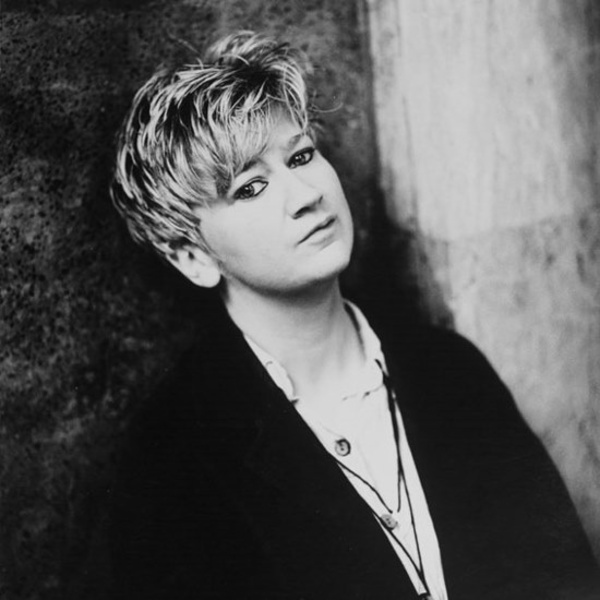
Anne Clark was born in London in 1960. She has described her childhood as “troubled, but loving.” She left school at sixteen, taking various jobs, including as a nurse in a psychiatric hospital, and then eventually at a record store and label called Bonaparte Records. Punk rock was exploding in London, and it resonated with her a lot. She became involved in Warehouse Theatre, which was an independently financed stage for bands, and began booking artists such as The Durutti Column, Ben Watt (Everything but the Girl, in case you missed my post on Tracey Thorn), and Paul Weller (The Jam). She began to experiment with music and lyrics herself while working in support of the local music community in this way, which resulted in her first appearance on stage in Richard Strange’s Cabaret Futura with Depeche Mode. Around this time, she developed the Riot Stories publishing company with Paul Weller.
Anne Clark holds a unique place between in the interstices between music and literature, my two favorite things! The music she began making herself combined literary and socially engaged lyrics with innovative genre-bending soundscapes, and she has continued to do this for forty years. Her first album, The Sitting Room (1982), was ranked eleventh in the Top 100 Albums of 1983. It is only fifteen minutes long, so I am just going to post the whole thing for you to experience.
For the rest of the eighties, she worked principally in collaboration with a colleague from the Warehouse–keyboardist and producer, David Harrow–on records like Changing Places (1983), Joined Up Writing (1984), and Hopeless Cases (1987). Songs like “Sleeper in Metropolis,” “Our Darkness,” and “Wallies” were groundbreaking and revolutionary to the musical trajectory of the eighties. “Our Darkness” is considered one of the greatest EBM (electronic body music) and industrial tracks ever, and is a deeply influential proto-house record (Factmag). You can still hear it on proper dance floors the world over, and it always has an immediate and strong effect on the dance floors on which it is played.
In the late eighties, Anne’s tour of the U.S. was canceled, which resulted in her only being known mainly by DJs and other types of record shop crate diggers over here. In the early nineties, she began to experiment with minimal Scandinavian jazz influences on records like Unstill Life (1991) and The Law is an Anagram of Wealth (1993).
In 1994, Anne began experimenting with accoustic music on her album Psychometry. She also released the singles “Elegy for a Lost Summer” (1994) and “Letter of Thanks to a Friend” (1996).
Anne Clark has made a lot of records; in fact, very few artists have covered such a wide spectrum over such a long and consistently interesting career. She continues to create music to this day, and each time she records something she challenges both herself and her audience by always seeking new forms of expression at the intersection of sound and language. I will let you investigate the rest for yourself if you are interested, but I will also be writing a lot more about her when I turn this whole thing into a book. I will leave you with this very interesting recent collaboration she did following the election of Donald Trump…
